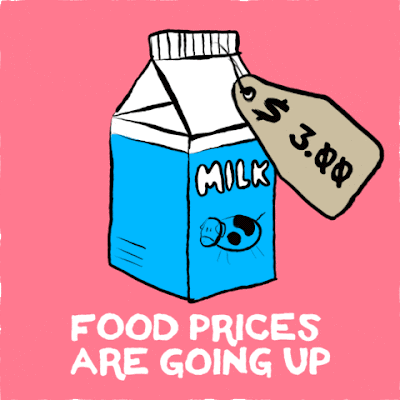What Happens Next Might Surprise You
by Danno
So we've all been through this once-in-a-lifetime experience over the past 2 years. Pandemic. Economic "shutdown"... kinda. Daily deaths higher than 9/11... allegedly. Income and wealth disparity at or near record levels. Riots in streets. "Insurrection". Racial tension. Political tension. Inflation.
The most recent pandemic comparison we have is the Spanish Flu of 1918-1919. What came after that was the "Roaring 20's", and the stock market did this...
(from macrotrends.net)
Fine, it's only a sample size of 1, but it's kind of the only comp we have to work with.
I gotta believe that the Spanish Flu damn near shut down the economy.
I gotta believe that lots of people lost their jobs.
I gotta believe that people changed their behaviors.
I gotta believe that people rethought the way the world worked.
I gotta believe there were supply chain disruptions.
I gotta believe there were 2nd and 3rd and 4th strains of the virus.
I gotta believe there were fits and starts reopening.
And I know for sure that they got past it, and the economy went bananas.
I won't go into what happened 10 years later when the sugar high wore off (Great Depression on History.com), but that was 10 years later! Could we seriously have another 7-8 years left of economic and market expansion?!?
I have no idea.
It seems obvious that we've moved from the pandemic phase to the endemic phase. It seems obvious that people get back to work and supply chains get caught up. It seems obvious that many instances of face-to-face interactions can be done more efficiently through a videoconference, and that is being widely adopted. It seems obvious that "work from anywhere" is here to stay, and commercial office space will need to be rethought. It seems like inflation should soon moderate due to a combination of reduced shortages, reduced expectations of new major spending bills, and increased expectations of rising interest rates.
Many investors will study history, and use that information to inform their decision-making going forward, and that's a good idea up to a certain point. However, the next time whatever kind of event occurs, the price action is different than the previous occurrence because a number of people on the margin act differently. This is part of what makes stock market predictions so embarrassing, because you are literally trying to predict the emotional behavior of other investors.
It's a certainty that many of today's investors have studied the price action before, during, and after the pandemic of 1918-1919, and have made their investment decisions accordingly. So it seems possible that some of the market growth that was experienced in the 1920's may have been pulled forward into the first half of the 2020's this time. But no one really knows.
What happens next is almost always a surprise. What's important is to acknowledge that you don't know what happens next, and to have an investment approach that will work over the long term regardless of what happens next.
Now go drop some knowledge on a friend. I'm out.
Legal Disclosure: This is not Investment Advice. The commentary on thetransparentadvisor.com reflects the personal opinions, viewpoints, analyses, and often sarcasm of Danno Hoff and should not be regarded as a description of services provided by his employer or its affiliates. The opinions expressed in this website are for general informational and entertainment purposes only and are not intended to provide specific advice or recommendations for any individual or on any specific security. It is only intended to provide education about the financial industry and provoke thoughts. The views reflected in the commentary are subject to change at any time without notice. Nothing on this website constitutes investment advice, performance data or any recommendation that any particular security, portfolio of securities, transaction or investment strategy is suitable for any specific person. Any mention of a particular security and related performance data is not a recommendation to buy or sell that security. Any indices referenced for comparison are unmanaged and cannot be invested into directly. Investments in securities involve the risk of loss. Past performance is no guarantee of future results.


